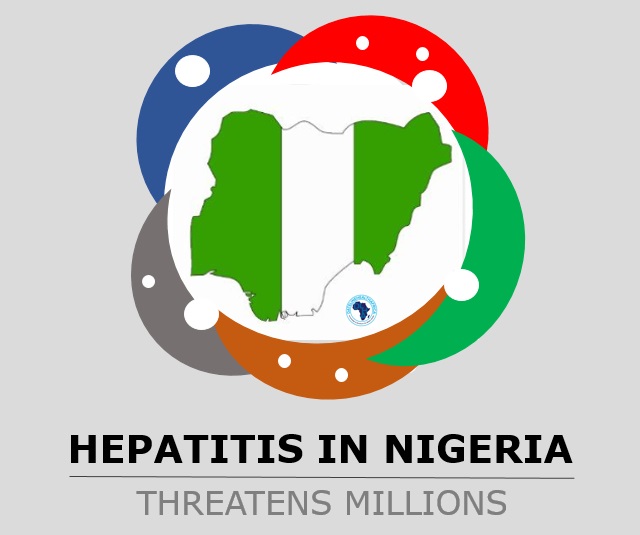By: Modupe Adeniyi. Freelance Health Reporter.

Hepatitis threatens millions in Nigeria
FRIDAY, JULY 26, 2024. As World Hepatitis Day approaches on July 28, alarm bells are ringing over the rapid spread of what experts are calling the world's deadliest virus after COVID-19. With an estimated 20 million Nigerians affected, the need for immediate action has never been more critical.
The World Health Organization (WHO) has set an ambitious target to eliminate all types of hepatitis by 2030. However, experts are concerned about the slow progress towards this goal.
Despite being entirely preventable, hepatitis remains the leading cause of liver cancer globally.
Speaking on The Global Hepatitis Report 2024 released ahead of the World Hepatitis Day on July 28, the WHO Director-General, Dr. Tedros Adhanom Ghebreyesus said, "This report paints a troubling picture," "Despite progress globally in preventing hepatitis infections, deaths are rising because far too few people with hepatitis are being diagnosed and treated."
In Nigeria, the situation is particularly dire. Professor Jesse Abiodun Otegbayo, from the University of Ibadan, reveals that about 20 million Nigerians are hepatitis-positive, with young adults being the most affected demographic. Alarmingly, 80% of these cases remain undiagnosed, significantly increasing the risk of transmission and progression to severe liver conditions.

WHO: Hepatitis is a leading cause of liver cancer globally
Dr. Hafsat Iyanda from the Federal Ministry of Health adds, "About 8.1% of Nigerians are living with HBV and 1.1% with HCV. Low levels of awareness inevitably cause stigma and discrimination, as well as high mortality, especially amongst children."
Dr. Bola Oyeletun, CEO of the Centre for Integrated Health Programmes (CIHP), laments the low level of awareness about hepatitis in Nigeria. She emphasizes that this lack of knowledge contributes to the increased risk of transmission and progression to severe diseases like liver cirrhosis and liver cancer.
"The cost of treatment, clinical and laboratory monitoring and follow-up for identified hepatitis cases is very high," Oyeletun explains. "With out-of-pocket payment for healthcare still being a mainstay for many Nigerians, treatment outcomes remain poor for many cases."
Professor Otegbayo further highlights the challenges in diagnosis and treatment: "Many cases of acute hepatitis are missed even by medical practitioners because the symptoms are usually non-specific until the onset of jaundice." He adds that the chances of survival for advanced liver cancer are slim with over 90% of patients with late presentation often having the disease spread to other organs.
Professor Joseph Tucker from the University of North Carolina highlights the importance of vaccination, particularly for newborns. "A newborn with hepatitis B faces very severe outcomes and is at a greater risk of both liver failure and death," he states. "The HBV vaccine is very important and should be given within 24 hours of birth."
However, vaccine hesitancy remains a significant challenge in Nigeria. Tucker acknowledges that while side effects can occur, they are limited, and the benefits far outweigh the risks.
The WHO 2024 Global Hepatitis Report reveals that hepatitis is now the second leading infectious cause of death globally, with 1.3 million deaths per year. Nigeria is among the ten countries collectively shouldering two-thirds of the global burden of hepatitis B and C, making intensified efforts towards prevention, diagnosis and treatment essential to meet the Sustainable Development Goals.
This year's World Hepatitis Day theme, "It's time for action," underscores the urgent need for collaborative efforts to combat this silent epidemic.
Key WHO recommendations for action include:
Professor Otegbayo emphasizes the importance of these measures, particularly the screening of expectant mothers during antenatal care to prevent mother-to-child transmission and the vaccination of babies at birth.
As Nigeria grapples with this growing health crisis, it's clear that concerted efforts from government, healthcare providers and the public are needed to turn the tide against hepatitis. The WHO African Region bears 63 percent of new hepatitis B infections yet only 18 percent of newborns in the region receive the hepatitis B birth-dose vaccination, indicating a backward movement.
The time for action is now – millions of lives depend on it. As we approach World Hepatitis Day, let it serve as a catalyst for increased awareness, improved healthcare policies, and a renewed commitment to eliminating this preventable yet deadly disease. Only through collective action can we hope to achieve the WHO's 2030 target and save countless Nigerian lives from the scourge of hepatitis.
WHO: 5 things to know about viral hepatitis. Click on image to enlarge
Sources:
WHO Global Hepatitis Report 2024
The Guardian News.
Published: July 26, 2024
© 2024. Datelinehealth Africa Inc. All rights reserved.
Permission is given to copy, use and share content for non-commercial purposes without alteration or modification and subject to attribution as to source
DATELINEHEALTH AFRICA INC., is a digital publisher for informational and educational purposes and does not offer personal medical care and advice. If you have a medical problem needing routine or emergency attention, call your doctor or local emergency services immediately, or visit the nearest emergency room or the nearest hospital. You should consult your professional healthcare provider before starting any nutrition, diet, exercise, fitness, medical or wellness program mentioned or referenced in the DatelinehealthAfrica website. Click here for more disclaimer notice.